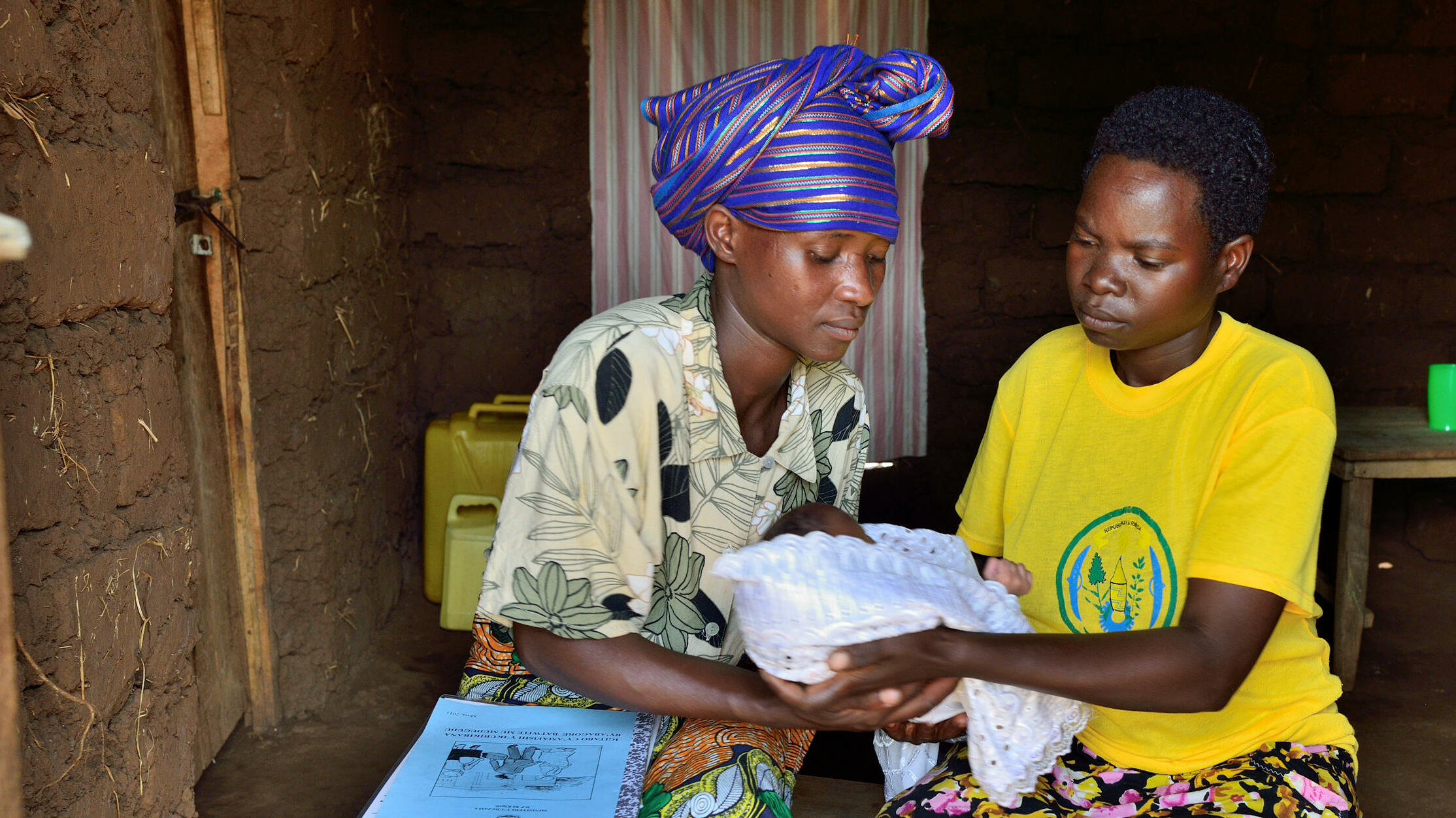
Keeping birth safe and supporting women and their families to have a positive childbirth experience is the responsibility of all health cadres working within the maternity environment. International attention increasingly recognises that midwives are “ the single most critical person for effective care at the time of birth” and that in countries with the best pregnancy outcomes, midwives are the primary providers of care to pregnant women.
Globally, there is a shortage of nurse-midwives, especially in low-income countries. This means that women and babies die from complications that can easily be prevented such as obstetric haemorrhage, sepsis, hypertension and obstructed labour.
To reduce maternal mortality, it is important that all women have access to maternal health care services, particularly skilled attendance at birth and timely access to Emergency Obstetric Care (EmOC) when an obstetric complication occurs. Skilled birth attendance includes the healthcare provider who provides professional care at the time of childbirth i.e. the skilled birth attendant and the enabling environment, a well-functioning health system with the necessary equipment, medicines and consumables and the ability and pathway to refer women or their babies to a health facility providing a higher level of care if this is needed.
Midwives and nurse-midwives are often the first to recognise and manage an obstetric emergency or resuscitate a baby as they support women during birth. Therefore, they need the skills and resources to be able to save lives. The Centre for Maternal and Newborn Care (CMNH) has designed and delivered multi-disciplinary ‘’skills and drills’’ training workshops in numerous countries. The Life Saving Skills & Essential Obstetric Care workshop is facilitated by a multi-disciplinary team including midwives, doctors, anaesthetists and paediatricians. The course provides training in five major causes of maternal death (haemorrhage, sepsis, eclampsia, complications of obstructed labour and abortion) as well as Newborn Resuscitation and Early Newborn Care. This course has been delivered in 11 countries across Sub-Saharan Africa and Asia through our Making it Happen (MiH) programme.
Evidence from the MiH programme shows that short in-service EmOC&NC training improved knowledge and skills for all cadres of healthcare providers working in maternity wards. It also recommended that all EmOC&NC trainings are evidence-based, the right cadres of healthcare providers are trained i.e. skilled birth attendants, the training is adapted to the country-context, routinely evaluated and supported by evidence-based guidelines and policies. Skills laboratories can be used to increase competence and confidence in EmOC&NC skills through the use of low fidelity mannequins and role play.
Through this course, we have worked with many midwives and nurse-midwives around the world:
Nurse-midwife, Pakistan 2013
“After the second day of the course after we had learnt about haemorrhage, I was called into the hospital at night. A woman was bleeding badly. We used the things I’d learnt that day – quickly giving IV fluids, catheterising her, giving more oxytocin and making sure her uterus was well-contracted. We worked as a team and saved her life.”
Midwife, Cambodia 2017
“Since I have been on the EmOC&NC course, I can manage neonatal resuscitation better and the babies survive. I am more confident looking after a woman with eclampsia and give the magnesium sulphate right away.”
Médecins Sans Frontières midwife and volunteer facilitator, Liverpool, 2018
“I came to do the EmOC&NC training workshop prior to working in a low resource setting. I enjoyed the course hugely and was invited to do the training as a facilitator. It has helped me in my work abroad and has given me a wonderful opportunity to work with incredible experienced colleagues. It is so satisfying knowing that the course makes a difference to women in low and middle-income countries. It has given me confidence to do my work and I have learned so much and continue to learn”
Obstetrician, LSTM 2018
“The multi-disciplinary nature of this course adds huge value. It teaches midwives and doctors to value each other’s contributions to maternity care and enhances good teamwork. We all need each other to provide women with the care they deserve. Good quality training should help to bring lasting change and improvement”